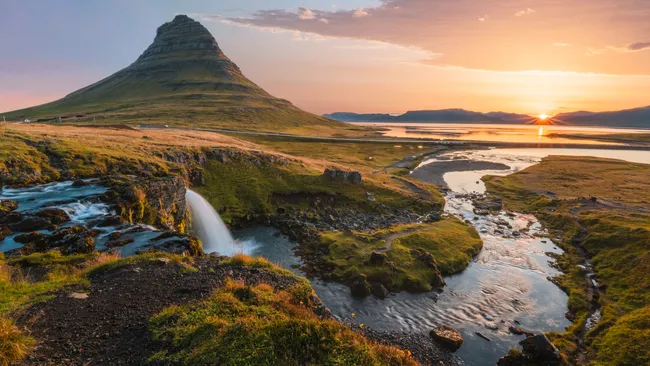One country’s unique climate keeps it a mosquito-free zone, but global warming may change that.
Iceland: The Only Country in the World Without Mosquitoes
Mosquitoes are among the most widespread insects on Earth, biting humans in nearly every country and transmitting dangerous diseases such as malaria, dengue, and Zika. But is there anywhere you can escape these blood-sucking pests? Surprisingly, the answer is yes: Iceland is the only country in the world that has no native mosquito population. (Technically, Antarctica is also mosquito-free, but since it’s a continent rather than a country, Iceland holds the title.)
What makes Iceland unique is that while its neighbors — including Norway, Scotland, and Greenland — host multiple mosquito species, the island remains free of them. Scientists have long been intrigued by this phenomenon, and several theories attempt to explain it.
Why Doesn’t Iceland Have Mosquitoes?
One idea is simply geographic isolation. Iceland is separated from nearby countries by hundreds of miles of open ocean. This natural barrier makes it difficult for mosquitoes to arrive by themselves. Still, mosquitoes do occasionally hitch rides on planes and ships. In fact, Gísli Már Gíslason, a professor emeritus of limnology at the University of Iceland, once captured a mosquito on a flight from Greenland to Reykjavík. Studies also show that mosquitoes can survive for hours clinging to airplane landing gear, even in freezing temperatures.
So if they do arrive, why haven’t they established permanent populations? The answer lies in Iceland’s unique climate patterns.
The Role of Iceland’s Harsh Climate
The mosquito life cycle requires four stages — egg, larva, pupa, and adult — and all but the final stage depend on standing water that doesn’t freeze. In the Arctic, some mosquito species survive long winters by remaining dormant as eggs until spring. In milder parts of Europe, mosquitoes survive as eggs, larvae, or even adults hidden in sheltered spots.
But Iceland sits in an awkward middle zone. Its long winters and frequent freeze-thaw cycles in autumn and spring repeatedly freeze, melt, and refreeze ponds and marshes. This cycle disrupts mosquito development, killing eggs and larvae before they can mature into adults. According to Robert Jones, an insect biologist at the London School of Hygiene & Tropical Medicine, this “stop-start freezing process makes it nearly impossible for mosquitoes to build stable populations.”
Even Iceland’s famous geothermal pools, which stay unfrozen year-round, aren’t suitable. Their mineral-rich, hot water is inhospitable to mosquito larvae adapted to cold northern environments.
Could Climate Change Bring Mosquitoes to Iceland?
For now, Iceland remains mosquito-free. But with climate change warming global temperatures, that may not last forever. Warmer autumns and springs could extend the period when ponds remain unfrozen, creating a stable environment for mosquito larvae to survive.
Immo Hansen, a biology professor at New Mexico State University, notes that tropical mosquito species are already expanding northward in the United States as winters warm. Similar changes could eventually open the door for mosquitoes in Iceland.
History shows that once mosquitoes gain a foothold, they can spread quickly. Hawaii was once mosquito-free until 1826, when ships accidentally introduced them. The favorable tropical climate allowed mosquitoes to thrive, and they have since spread even into higher, cooler forests.
Could Iceland Face Mosquito-Borne Diseases?
Even if mosquitoes eventually establish themselves in Iceland, the risk of tropical disease transmission remains low. Species like Aedes aegypti, which spread dengue, chikungunya, and Zika, need consistently warm climates to survive. Iceland’s cool temperatures, even under climate change projections, are unlikely to support these species.
Robert Jones explains that while southern Europe could face increasing risks of mosquito-borne disease outbreaks, modeling studies suggest that northern Europe, including Iceland, will remain unsuitable for dengue transmission even by 2080.
Final Thoughts
For now, travelers can visit Iceland without worrying about mosquito bites, making it a rare mosquito-free destination. However, scientists continue to monitor the effects of global warming on insect migration. If climate change creates longer warm seasons and more stable water sources, Iceland’s mosquito-free status may eventually come to an end.
Until then, Iceland holds its unusual title as the world’s only mosquito-free country, offering a true refuge from one of humanity’s most irritating pests.
